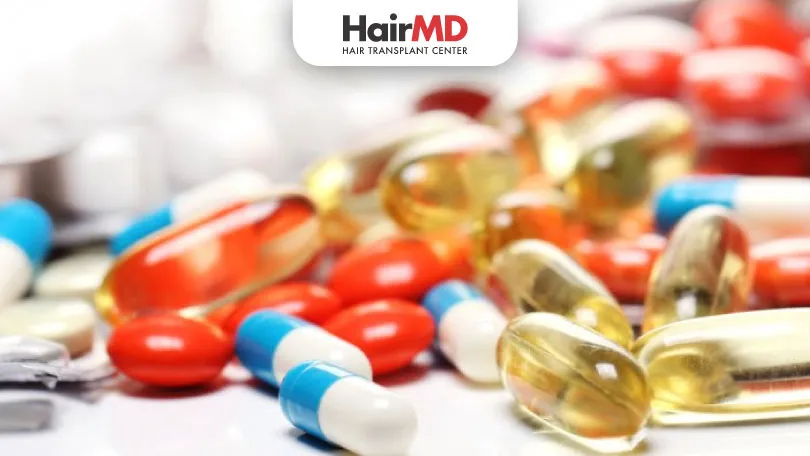1st November, 2023
Taking proper medication after a hair transplant is one of the key parameters in the aftercare of hair transplant for better results. In this blog we will look at the right medication regimen you need to undertake after hair transplant surgery to ensure that your transplanted hair stays healthy.

Table Of Content
- Care after hair transplant surgery
- Medicines to be taken after hair transplant
- How does Minoxidil work?
- How does Finasteride work?
- How does Derma Roller work?
- How does PRP work?
- When to start medication after hair transplant?
- Conclusion
Care after hair transplant surgery
- You can wash your hair after the fifth day of your surgery.
- Don’t worry if you see a swelling on your face for the first 4-5 days because it is a common occurrence.
- It is advisable to avoid smoking and drinking for at least 4 weeks after surgery.
- Don’t scratch your head even if you feel like itching your scalp.
- For the first wash after your surgery, you should consult your surgeon for better guidance.
- Take the prescribed medications after hair transplant carefully.
Medicines to be taken after hair transplant
After a hair transplant, doctors generally advise having some oral antibiotics and topical antibacterial cream for applying on the open wound for the first few days. Medications such as Minoxidil and Finasteride, along with treatments such as Dermaroller, PRP, etc. are usually prescribed.
The most important thing to know first is – What are Minoxidil and Finasteride, and how does it work?
How does Minoxidil work?
How does Finasteride work?
How does Derma Roller work?
How does PRP work?
When to start medication after hair transplant?
Conclusion

Written by HairMD Content Team | Medically Reviewed by Dr. Dhanraj Chavan On November 01, 2023
Popular Q&As
FUE vs FUT: Which one is a Best Method of Hair Transplant?
Considering a hair transplant but unsure whether FUE or FUT is better? You’re in the right place! Let’s explore the differences and help you make the right choice.
What are the Precautions Before Hair Transplant?
All of us are familiar with hair transplant, planning to go for a Hair Transplant. Let’s see what all pre-hair transplant precautions we should consider.
Is Hair Transplant Successful in India?
Curious if hair transplants are successful? Consult our expert, Dr. Dhananjay Chavan, with 34+ years of experience and over 700 successful cases.
We Got Your Back! Ask Us Anything On Your Mind!
Reach out to us on


